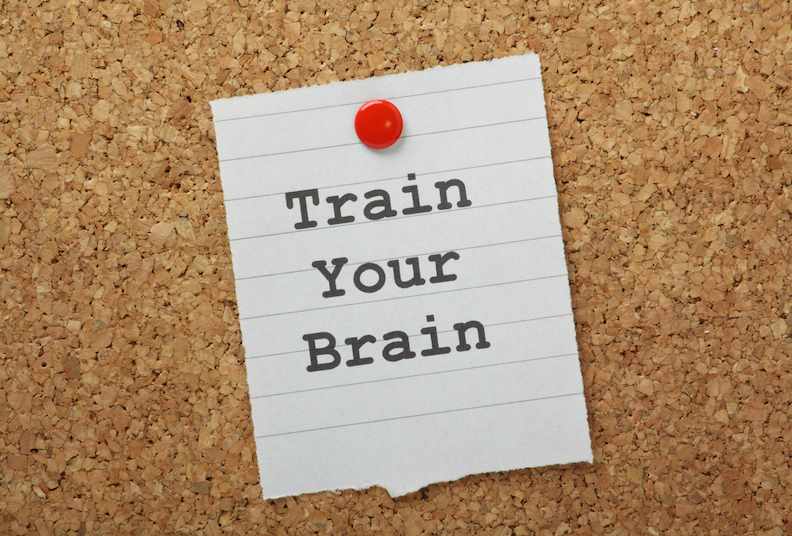Learn about brain health and nootropics to boost brain function
10 ways to improve your memory at any age

Want to sharpen your memory?
Hot flushes, insomnia, and troubling mood swings. Does that remind you of something? During menopause, women’s ovaries stop making their regular levels of progesterone and oestrogen. As a result, the entire system changes. There’s no age calculator to tell you exactly when you’re going to experience it, although on average it’s age 51.
But there’s one symptom you might not have heard about: brain fog. At first, you assume you’re experiencing mental fatigue because you can’t sleep well. You notice you can’t pay attention, you’re confused, and forget things that are easy to remember.
In my case, it’s the phone. I always forget where I left it. One time, I found it in the fridge. Everyone thought it was a joke, but it was a moment of awareness for me: something is wrong and I need to do something about it. Why do memory issues occur during menopause?
A study from 2013 showed that fluctuations in oestrogen levels during perimenopause significantly affect the memory capacity. Before their oestrogen levels dipped, the women who participated in the study had normal working and semantic memory. When the levels dropped, their performance was affected.
Hold on.
This is not something we should make peace with.
There are ways to prevent the memory decline. In fact, a study from 2014 showed that mind-body medicine had a great potential to improve a woman’s cognitive performance at any age. 10 ways to improve your memory at any age
1. Change your eating habits
Sugar is out. When your brain is foggy, you feel a lack of energy. Carbs give you an instant boost, so you often reach for them. However, you quickly hit a new low after that spike. You need to avoid sugar and shift towards loads of veggies and fruits. 2. Try to get your sleep in order
“Maintain a regular sleeping schedule” is an easy tip to give. Lack of sleep does affect your cognitive performance. But how do you solve this issue when it’s not something you willingly caused?
There are a few things you can do: Quit coffee. If that’s too hard, you can limit your intake to one cup in the morning.
Get a good mattress and a nice pillow.
Try not to use your computer, smartphone, or tablet at least two hours before going to bed.
Learn a relaxation technique and practice it before bed.
3. Exercise
Aerobic exercise and yoga are great for women at any age. Physical activity can contribute towards memory improvement because it gives you energy, it motivates you to eat healthy, and it improves your sleep.
It’s best to exercise in the morning or throughout the day. Avoid doing it in the evening, since the energy boost will disturb your sleep. 4. Read
You have to keep your mind active. Read books, but choose good ones. Don’t opt for mainstream page-turners. Read the books that have been on your list for ages, but you never got to them. 5. Write
Journalling helps a lot! Note down the highlights of the day. This habit will inspire you to pay attention to everything that happens. You’ll want to remember a moment, so you’ll write about it later on. With time, you’ll become more aware of everything you do.
If writing isn’t your thing, you can collaborate with a professional personal statement writing service . A writer will help you find your unique voice, so you’ll like the stuff you put on paper. You can even turn your journal into a blog. 6. Play mind games
Try a brain training app with lots of different games and activities to give yourself a new challenge every day. 7. Take ginkgo biloba supplements
You should consult your doctor before taking any supplements. Ask if you can take ginkgo biloba. It’s generally considered safe as a supplement, but it may interact negatively with some meds you’re taking.
This is a useful natural supplement that prevents memory loss and dementia. 8. Meditate
Meditation is usually recommended as a way to combat stress. However, it has magnificent effects on the mind when practiced regularly. It boosts your awareness for the now , so it naturally leads to memory improvement.
Meditation is hard at first. You sit with your eyes closed, and your mind starts wandering. You’ll have to learn how to control it, and you’ll need to practice every day. 9. Practice mindfulness Being mindful means being aware of the present moment. Meditation gets you in a state of mindfulness. However, you have to maintain it throughout the rest of the day.When you train your mind to be mindful of all thoughts and surroundings, it will stop wandering. You’ll become more attentive and it will be easier for you to remember everything. 10. Test your vitamin D levels and supplement if necessary Low levels of vitamin D may be responsible for the decline in cognitive function. This is a simple blood test to perform, but many doctors forget to recommend it. Test your Vitamin D levels. If you’re deficient, your doctor will prescribe a supplement. You can do this… Don’t get disappointed if you start forgetting things. Your female brain is still powerful and beautiful. You can work with it to make it stronger and more attentive.All tips listed above are pretty easy to implement into your lifestyle. You’ll have to make some effort to start exercising, reading, writing, and eating well on a regular basis. But when you turn these activities into habits, you’ll love yourself for making that effort.